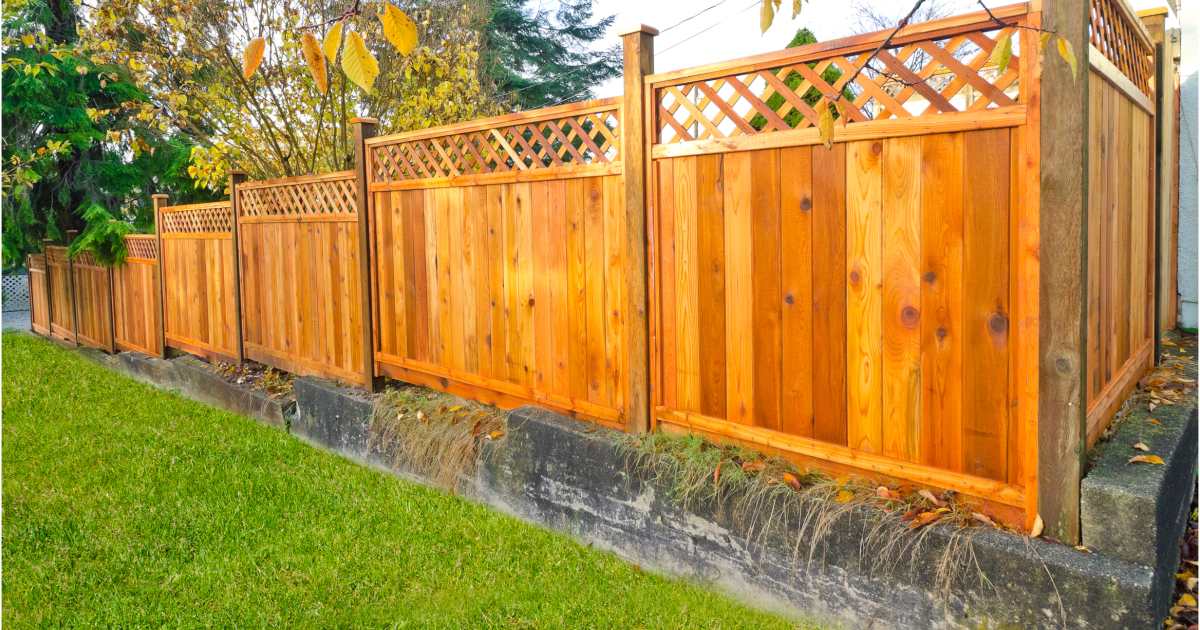All Categories
Featured

Mounting a fencing on a household building gives several benefits, from enhanced personal privacy and security to boosted aesthetic allure. The cost of installment can differ considerably depending on several variables. Understanding these variables will help you budget plan effectively and choose the best fencing service for your requirements.
Elements Affecting Fencing Installment Expenses. Fencing Material. The kind of product you select is one of the most considerable factors of cost. Common choices include:
Timber: Traditional and eye-catching, timber fences generally cost $10--$ 30 per direct foot. The cost can differ based upon the sort of timber, with cedar and redwood being a lot more costly than yearn. Vinyl: Low-maintenance and sturdy, vinyl fences vary from $20--$ 40 per direct foot. Chain Link: An economical option, chain web link fencings set you back around $8--$ 20 per straight foot. Aluminum or Steel: Steel fences give a smooth look and lengthy life expectancy, costing $20--$ 50 per linear foot. Composite: A premium material that combines wood fibers and plastic, costing $25--$ 60 per linear foot. Fencing Elevation and Length. Taller fencings require more materials and labor, boosting prices. Furthermore, the dimension of your residential or commercial property and the size of the fence directly impact material and setup costs.

Labor Costs. Employing professional installers generally costs $15--$ 35 per hour. Labor rates differ by area, with metropolitan areas typically being much more pricey than country places.
Building Terrain. The complexity of the installation rises if your property has irregular surface, rocky dirt, or significant slopes. Additional work, such as grading or exploration right into difficult dirt, contributes to the total cost.
Permits and Laws. Local zoning legislations usually require permits for fence installation. Permit prices vary from $50--$ 200, depending upon your community.
Extra Features. Gates, attractive components, or custom styles can boost the general rate. A conventional gateway could set you back $150--$ 600, while a motorized gate can exceed $1,000.
Average Cost Range for Residential Fencing Installation. For the majority of home owners, the total price of mounting a fence falls between $1,500 and $4,000. Nonetheless, larger or even more customized jobs can exceed $10,000. Here's a malfunction based on average fencing lengths:
100 Linear Feet: $1,000--$ 3,500. 200 Linear Feet: $2,000--$ 7,000. 300 Linear Feet: $3,000--$ 10,500. Ways to Reduce Fencing Installation. Do it yourself Installation:. Mounting the fence on your own can reduce labor costs, yet it needs time, devices, and proficiency.
Choose Cost-Effective Materials:. Opting for chain web link or lower-grade timber can minimize product costs.
Obtain Several Quotes:. Comparing quotes from different service providers ensures you get the very best cost.
Install Throughout the Off-Season:. Contractors might supply discount rates during slower durations, such as winter season.

Conclusion. The expense of installing a fencing on a house relies on material, terrain, labor, and size. By comprehending these aspects and preparing tactically, you can discover a fencing option that fits your budget plan and satisfies your requirements. Whether you prioritize sturdiness, visual appeals, or cost, a well-installed fencing is a financial investment that includes worth and capability to your home.
Latest Posts
Discover the Experts Behind Montclare Auto Repair - Experience You Can Rely On
Published Apr 20, 25
2 min read
Protect Your Future with WyHy's Unique Certificate Options
Published Apr 20, 25
1 min read
Preventative Maintenance at Montclare Auto Repair: Maintain Your Vehicle Running Smoothly
Published Apr 20, 25
2 min read
More
Latest Posts
Discover the Experts Behind Montclare Auto Repair - Experience You Can Rely On
Published Apr 20, 25
2 min read
Protect Your Future with WyHy's Unique Certificate Options
Published Apr 20, 25
1 min read
Preventative Maintenance at Montclare Auto Repair: Maintain Your Vehicle Running Smoothly
Published Apr 20, 25
2 min read